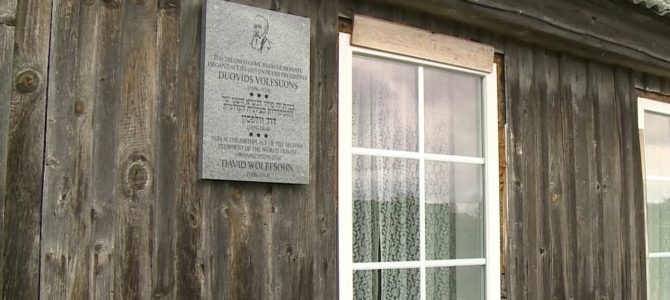by Jovita Gaižauskaitė, LRT TV
Residents of the town of Darbėnai in the Kretinga region are deciding how to commemorate the former Jewish population of about 550. The proposals so far have stirred up division in the town: no one wants to showcase that Jews were murdered there.
About 550 Jews lived in Darbėnai before World War II. Now the marked mass murder sites witness to their fate.
There is a plaque commemorating the Zionist Dovid Volfson, considered the inventor of the Israeli flag and the man who gave the modern shekel its name, on one of the houses in the Lithuanian town. Local residents keep coming up with more ideas to commemorate other Jews who lived there.
Darbėnai alderman Alvydas Poškys said: “They were more for showing it from the side of the rescuers of Jews, to commemorate the Lithuanians who rescued Jewish families, to commemorate them and to show that there were Jews who were rescued. But from the side of some of the Jewish community [?], they preferred showing what tradition they have, to commemorate the famous Jews who came from Darbėnai.”
A Darbėnai teacher proposed commemorating two famous native Jews, the photographer Eliyahu Bruck and the young girl Estera Kverelytė, who kept a diary similar to Anne Frank’s, using pavement stones. “I got interested and learned there are 60,000 such bricks placed throughout the world. Lithuania is the twenty-first country which has allowed this to take place,” the teacher said.
It was her proposal which caused some residents to join in opposition, because the bricks would contain an inscription saying such and such figure was murdered in Darbėnai.
“It is my opinion these bricks truly could appear, but maybe that ‘murdered in Darbėnai,’ maybe that shouldn’t be emphasized,” the alderman commented.
The community has come up with another idea: to renovate a building which remains standing in the town center and which formerly belonged to Jews. The mostly-ruined building belongs to the Kretinga regional administration.


